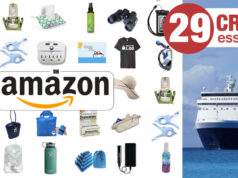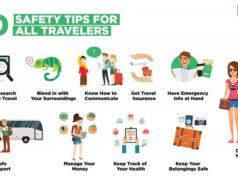In this article, we will explore how to determine the optimal cash amount for your international trips. We’ll discuss factors to consider, such as destination, expenses, and safety. By the end of this article, you’ll have a better understanding of how to maximize your travel budget and ensure you have the right amount of cash for a smooth and enjoyable trip. Determining the optimal cash amount for your international trip is an important consideration when planning your travel budget. Carrying too much cash can be risky, and not having enough can leave you stranded without the means to cover your expenses. Finding the right balance is crucial to ensure financial security and comfort during your travels. In this article, we will explore various factors to consider when deciding on a cash amount, methods to determine the optimal amount, tips for safeguarding your cash, managing cash while traveling, alternatives to carrying cash, and the pros and cons of using cash. By following these guidelines, you can maximize your travel budget and have a worry-free trip.

This image is property of upgradedpoints.com.
Determining Your Travel Budget
Before delving into the details of determining the optimal cash amount, it is important to establish your overall travel budget. This involves researching destination costs, calculating accommodation expenses, estimating transportation costs, considering meal and entertainment expenses, and accounting for miscellaneous expenses. By having a clear understanding of these factors, you can allocate an appropriate portion of your budget to cash.
Researching Destination Costs
It is essential to research the average cost of living in your intended destination. This includes expenses such as accommodation, meals, transportation, and entertainment. By understanding the general price range of the location, you can better estimate how much cash you will need on a daily basis.
Calculating Accommodation Expenses
Accommodation is typically one of the largest expenses of any trip. Researching the average cost of accommodation in your destination can help you calculate how much cash you should allocate to this category. Keep in mind that prices may vary based on the type of accommodation you choose, such as hotels, guesthouses, or vacation rentals.
Estimating Transportation Costs
Transportation expenses can vary greatly depending on the destination and your planned activities. Researching the local transportation options and their associated costs can help you estimate how much cash you should allocate for transportation. This can include expenses such as local bus or train fares, taxi rides, or car rentals.
Considering Meal and Entertainment Expenses
Food and entertainment expenses can also vary significantly depending on your destination and personal preferences. Researching the average cost of meals, drinks, and entertainment in your destination can help you estimate how much cash you should allocate for these expenses. Keep in mind that prices may vary depending on the type of establishment you choose, such as restaurants, street food vendors, or cafes.
Accounting for Miscellaneous Expenses
Miscellaneous expenses can include items such as souvenirs, sightseeing tours, tips, and any other unforeseen expenses. It is important to allocate a portion of your travel budget for these miscellaneous expenses and factor them into your overall cash amount.
Factors to Consider When Deciding on Cash Amount
Once you have determined your travel budget, there are several factors to consider when deciding on the optimal cash amount for your international trip. These factors include exchange rate fluctuations, availability of ATMs and credit card acceptance, security concerns, expected length of stay, and travel insurance coverage.
Exchange Rate Fluctuations
Exchange rates can have a significant impact on the purchasing power of your cash. It is important to monitor exchange rates and consider any potential fluctuations during your travel period. This can help you determine whether it is more advantageous to carry more or less cash.
Availability of ATMs and Credit Card Acceptance
Researching the availability of ATMs and credit card acceptance in your destination is crucial. Some countries may have limited access to ATMs or may predominantly operate on a cash-only basis. Understanding these factors can help you determine how much cash you will need to carry.
Security Concerns
Security concerns should also be taken into account when deciding on a cash amount. Carrying large sums of cash can make you a target for theft or pickpocketing. Researching the safety of your destination and taking precautions such as using hidden travel wallets or money belts can help protect your cash.
Expected Length of Stay
The duration of your trip can also influence the optimal cash amount. Longer trips may require a larger cash amount, while shorter trips may necessitate less cash. Consider your planned activities and the availability of ATMs in your destination when determining the appropriate cash amount.
Travel Insurance Coverage
Reviewing your travel insurance coverage is important to understand the extent of its benefits. Some travel insurance policies may cover lost or stolen cash, which can provide an additional layer of security in case of emergencies. Knowing your coverage can help you determine how much cash you should carry.
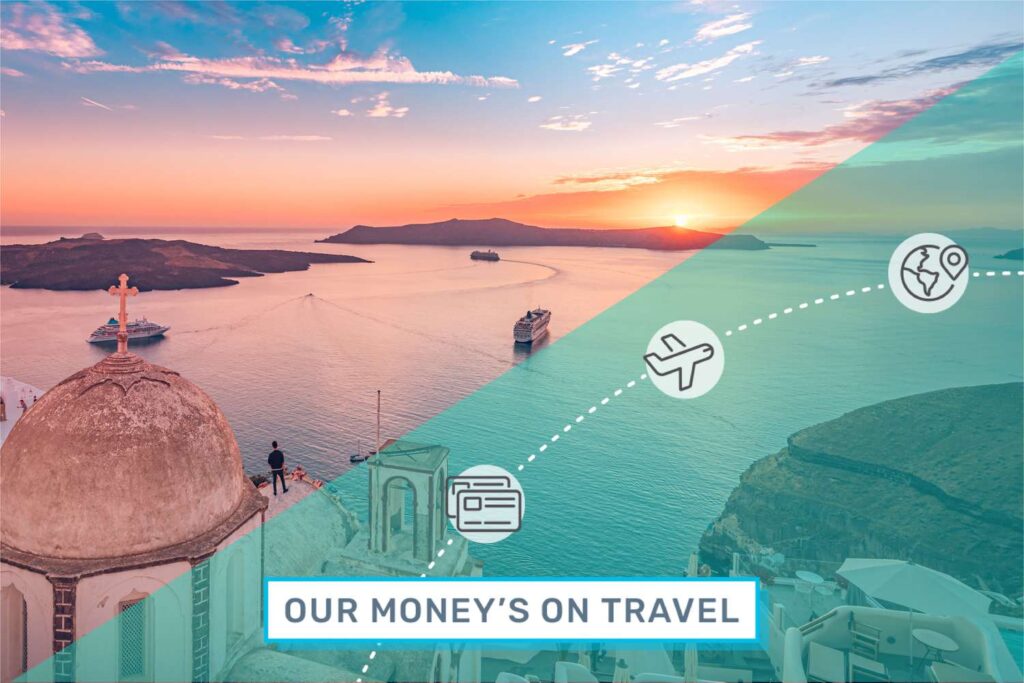
This image is property of www.thebalancemoney.com.
Methods to Determine Cash Amount
Now that you have considered the various factors influencing the optimal cash amount, there are several methods you can employ to determine the right amount for your international trip.
Using Online Travel Budget Calculators
Online travel budget calculators can be a helpful tool in determining the optimal cash amount for your trip. These calculators take into account factors such as destination, duration of stay, accommodation preferences, transportation costs, and daily expenses. By inputting this information, you can receive an estimate of the cash amount you should carry.
Consulting with Travel Agencies or Experts
Seeking advice from travel agencies or experts can provide valuable insights into determining the appropriate cash amount. These professionals have experience in planning trips and can offer guidance based on your destination and personal preferences. They can help you assess your specific needs and advise on the optimal cash amount.
Analyzing Historical Expenses
If you have traveled to your destination before, analyzing your historical expenses can give you an idea of how much cash you typically spend. Review your past travel records and consider any major differences in spending patterns or any lessons learned from previous trips. This can help you estimate the cash amount you should carry.
Assessing Personal Spending Habits
Understanding your personal spending habits is crucial in determining the optimal cash amount. Consider your preferences for dining, entertainment, activities, and souvenirs. If you tend to spend impulsively or indulge in high-end experiences, you may need to allocate more cash to your budget.
Considering Backup Emergency Funds
In addition to the cash amount you plan to carry, it is important to have backup emergency funds in case of unforeseen circumstances. This can include unexpected expenses or emergencies that require immediate cash. Consider setting aside a separate amount as a contingency fund to ensure you have sufficient funds in case of emergencies.
Locating and Obtaining Local Currency
Once you have determined the optimal cash amount, the next step is to locate and obtain the local currency of your destination. This involves researching currency exchange options, comparing exchange rates, exploring ATM withdrawal fees, utilizing local banks or currency exchange services, and ensuring sufficient cash availability.
Researching Currency Exchange Options
Researching the available currency exchange options can help you obtain the local currency at the best rates. Compare the rates offered by banks, currency exchange offices, and online platforms. Keep in mind that different exchange options may have varying rates and fees, so it is important to choose the most favorable option for your needs.
Comparing Exchange Rates
Exchange rates fluctuate, so it is important to compare rates offered by different currency exchange providers. Consider using online platforms or apps that provide real-time exchange rates. This can help you get the most favorable rate for your currency exchange.
Exploring ATM Withdrawal Fees
If you plan to rely on ATMs for obtaining local currency, it is important to understand any associated fees. Some banks or ATM providers may charge a fixed fee or a percentage of the withdrawn amount. Researching these fees can help you determine the most cost-effective option for obtaining cash.
Utilizing Local Banks or Currency Exchange Services
Local banks or currency exchange services in your destination can provide a convenient way to obtain cash. Research the locations and operating hours of these establishments to ensure easy access to the local currency. Additionally, consider any fees or commissions associated with these services.
Ensuring Sufficient Cash Availability
Once you have obtained the local currency, it is important to ensure sufficient cash availability throughout your trip. Consider dividing your cash between different locations, using hidden travel wallets or money belts, and keeping a small amount of local currency handy for immediate expenses. Safeguarding your cash is crucial to avoid any inconvenience or financial difficulties.
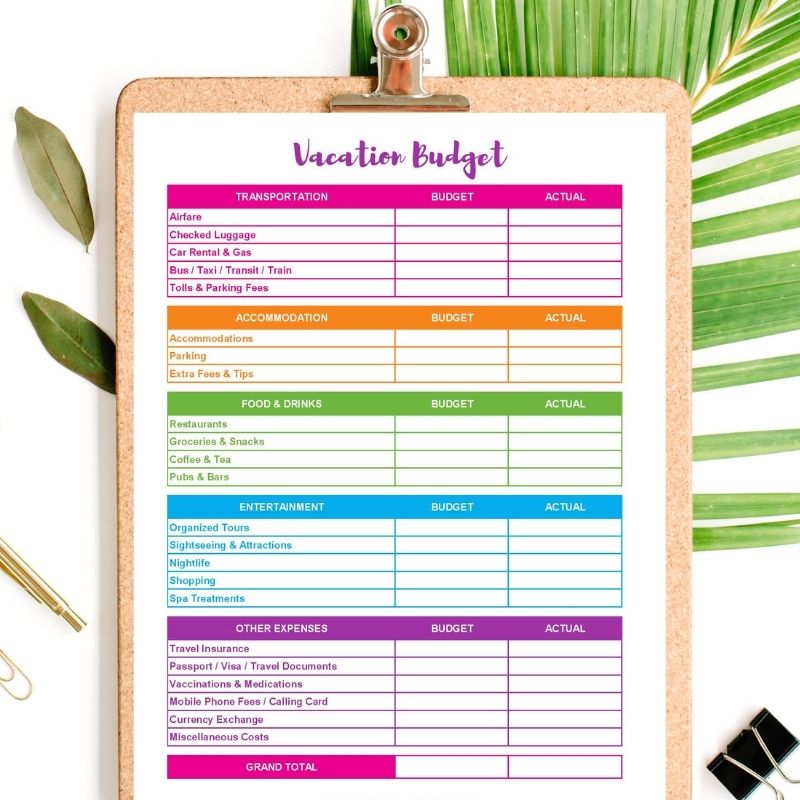
This image is property of www.mintnotion.com.
Tips for Safeguarding Your Cash
Carrying cash while traveling requires careful consideration and precautions to ensure its safety. Here are some tips for safeguarding your cash during your trip:
Dividing Cash between Different Locations
Divide your cash between different locations such as your wallet, bag, and hotel room. This can help mitigate the risk of losing all your cash at once in case of theft or misplacement.
Using Hidden Travel Wallets or Money Belts
Hidden travel wallets or money belts provide an extra layer of security by keeping your cash concealed on your body. These accessories can be worn underneath your clothing, making it harder for thieves to access your cash.
Keeping a Small Amount of Local Currency Handy
Keeping a small amount of local currency accessible can be useful for immediate expenses such as transportation or small purchases. It saves you from having to dig into your main stash of cash in public, minimizing the risk of theft or attracting unwanted attention.
Not Displaying Large Amounts of Cash Publicly
Displaying large amounts of cash publicly can make you a target for theft. Avoid counting or displaying your cash in public places, and be discreet when accessing your wallet or money belt.
Utilizing Hotel Safes and In-Room Lockboxes
Utilize the hotel safe or in-room lockbox to store your cash when you are not carrying it with you. This adds an extra layer of security and minimizes the risk of losing all your cash in case of theft or misplacement.
Managing Cash while Traveling
Once you have safeguarded your cash, it is important to manage it effectively throughout your trip. Here are some tips for managing your cash while traveling:
Tracking Daily Expenses
Tracking your daily expenses can help you stay within your budget and ensure you have sufficient cash for the entire duration of your trip. Use a travel expense tracker or simply keep a journal to record your expenses and monitor your cash flow.
Maintaining a Budget Worksheet
Maintaining a budget worksheet can help you keep track of your cash allocation and expenses. List down your anticipated expenses for each category and update the worksheet as you spend. This can help you stay organized and avoid overspending.
Separating Cash for Different Expenses
Separate your cash into different categories to ensure you have enough for each expense. For example, allocate a specific portion for accommodation, transportation, meals, and entertainment. This helps you prioritize your spending and avoid running out of cash for essential expenses.
Replenishing Cash as Needed
Monitor your cash reserves and consider replenishing your cash as needed. If you anticipate running low on cash or if you come across a favorable exchange rate, top up your cash supply to ensure you have sufficient funds for the remainder of your trip.
Monitoring Exchange Rate Changes
Exchange rates can fluctuate during your trip, which can impact the purchasing power of your cash. Keep an eye on exchange rate changes and consider exchanging your cash when rates are favorable. This can help you get the most value from your cash.
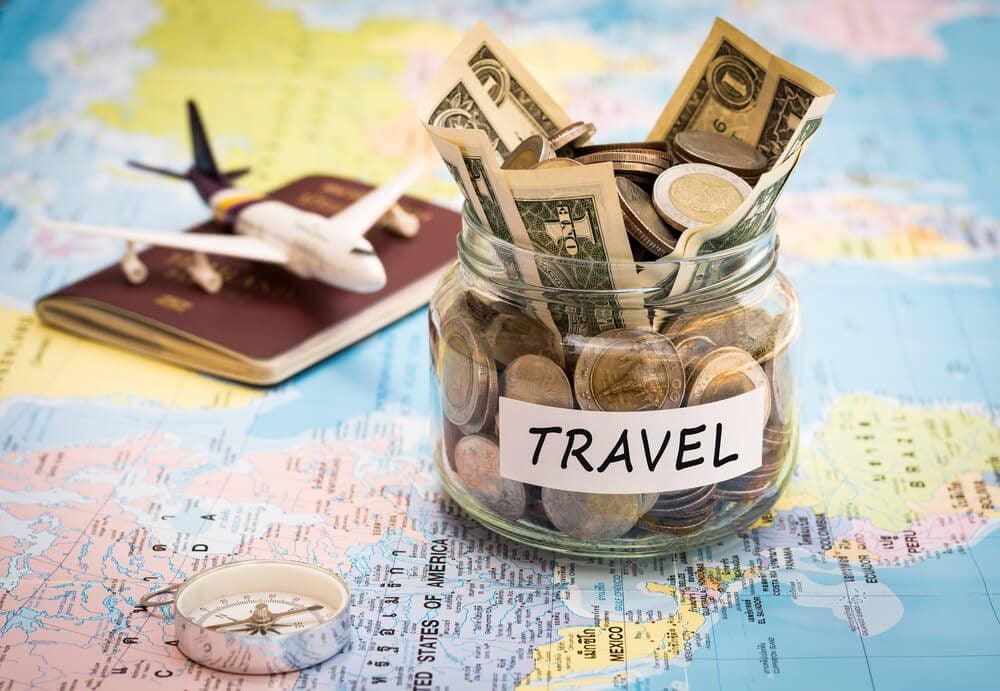
This image is property of www.rd.com.
Alternatives to Carrying Cash
While carrying cash is a common practice, there are alternative methods of payment that you can consider. These methods offer convenience and security, and they can help you reduce the amount of cash you need to carry.
Using Prepaid Travel Cards
Prepaid travel cards are a convenient and secure method of payment. These cards are loaded with a specific currency and can be used like a debit or credit card. They often come with additional features such as emergency assistance and the ability to reload funds remotely.
Employing Mobile Payment Apps
Mobile payment apps are becoming increasingly popular for international travelers. Services such as Apple Pay, Google Pay, or PayPal allow you to link your bank account or credit card to your mobile device, making payments easy and secure. However, it is important to ensure that these services are widely accepted in your destination.
Utilizing Traveler’s Checks
Traveler’s checks, although less commonly used today, are still accepted in some destinations. These checks are preprinted with a specific amount and can be exchanged for cash at banks or currency exchange offices. They offer added security as they can be replaced if lost or stolen.
Benefiting from Credit and Debit Cards
Credit and debit cards are widely accepted in many destinations, making them a convenient alternative to carrying cash. Contact your bank or credit card provider to inform them about your travel plans and ensure that your cards are internationally enabled. Be aware of any foreign transaction fees or conversion fees that may apply.
Exploring Local Payment Systems
Some countries have their local payment systems that allow you to make purchases using a specific app or card. Research the availability and acceptance of these systems in your destination. Being familiar with the local payment options can simplify your transactions and reduce the need for cash.
Understanding the Pros and Cons of Cash
While carrying cash has its advantages, it also has its disadvantages. Consider the following pros and cons to determine if cash is the right choice for your international trip.
Advantages of Cash
Cash provides a sense of security as it avoids the need for relying on technology or electronic systems. It also allows for easier budgeting and tracking of expenses. Cash can be especially useful in destinations that predominantly operate on a cash-only basis or have limited access to ATMs or credit card acceptance.
Disadvantages of Cash
Carrying cash can be risky, as it can be lost, stolen, or misplaced. It also comes with the risk of counterfeit bills. Additionally, cash cannot be easily replaced if lost or stolen, unlike prepaid travel cards or credit cards. It is important to weigh these disadvantages against the benefits of cash before making your decision.
Considering Personal Risk Tolerance
When deciding to carry cash or use alternative payment methods, it is important to consider your personal risk tolerance. If you are comfortable carrying cash and take the necessary precautions, it may be the right choice for you. However, if you prefer the convenience and security of alternative methods, explore those options instead.
Weighing Convenience and Security
Convenience and security are two significant factors when deciding on your preferred payment method. Cash offers convenience in terms of universal acceptance, while alternative methods offer security through features such as pin protection, transaction monitoring, and fraud protection. Consider your priorities and choose the option that aligns with your preferences.
Applying Cultural Etiquette
It is important to respect the local culture and customs of your destination when it comes to payment methods. Research the preferred payment methods in your destination and be prepared to adapt. Some countries may have specific customs or expectations regarding the use of cash or alternative payment methods.
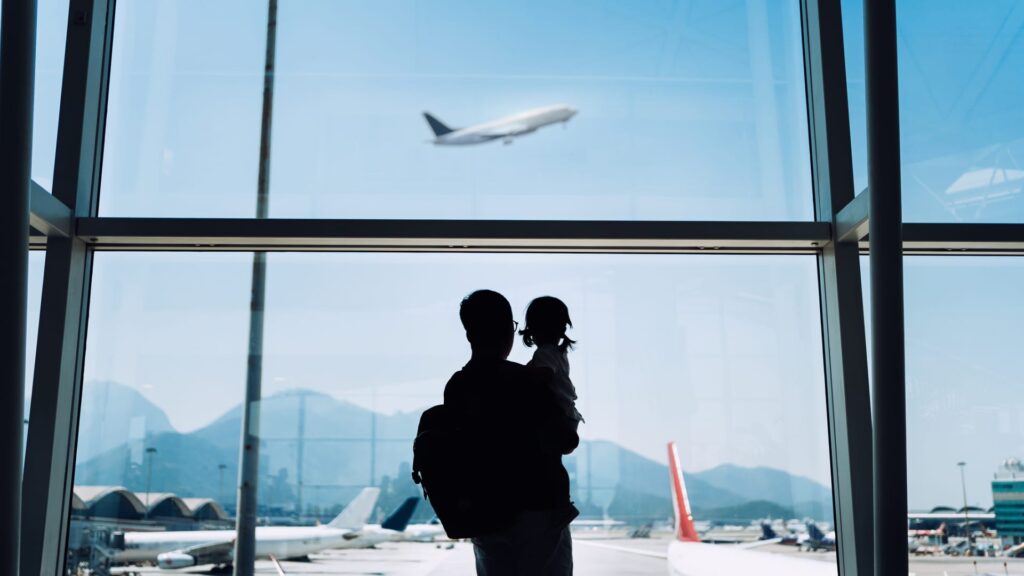
This image is property of image.cnbcfm.com.
Conclusion
Determining the optimal cash amount for your international trip is crucial in maximizing your travel budget and ensuring financial security and comfort. By considering factors such as destination costs, exchange rate fluctuations, and personal spending habits, you can make an informed decision on the appropriate cash amount. Use methods such as online travel budget calculators, consulting with travel agencies or experts, and analyzing historical expenses to determine the right cash amount. Safeguard your cash by dividing it between different locations, using hidden travel wallets or money belts, and utilizing hotel safes. Manage your cash effectively by tracking daily expenses, maintaining a budget worksheet, and replenishing cash as needed. Explore alternatives to carrying cash such as prepaid travel cards, mobile payment apps, and credit or debit cards. Understand the pros and cons of cash and consider your personal risk tolerance and cultural etiquette. By following these guidelines, you can maximize your travel budget and enjoy a worry-free international trip.



